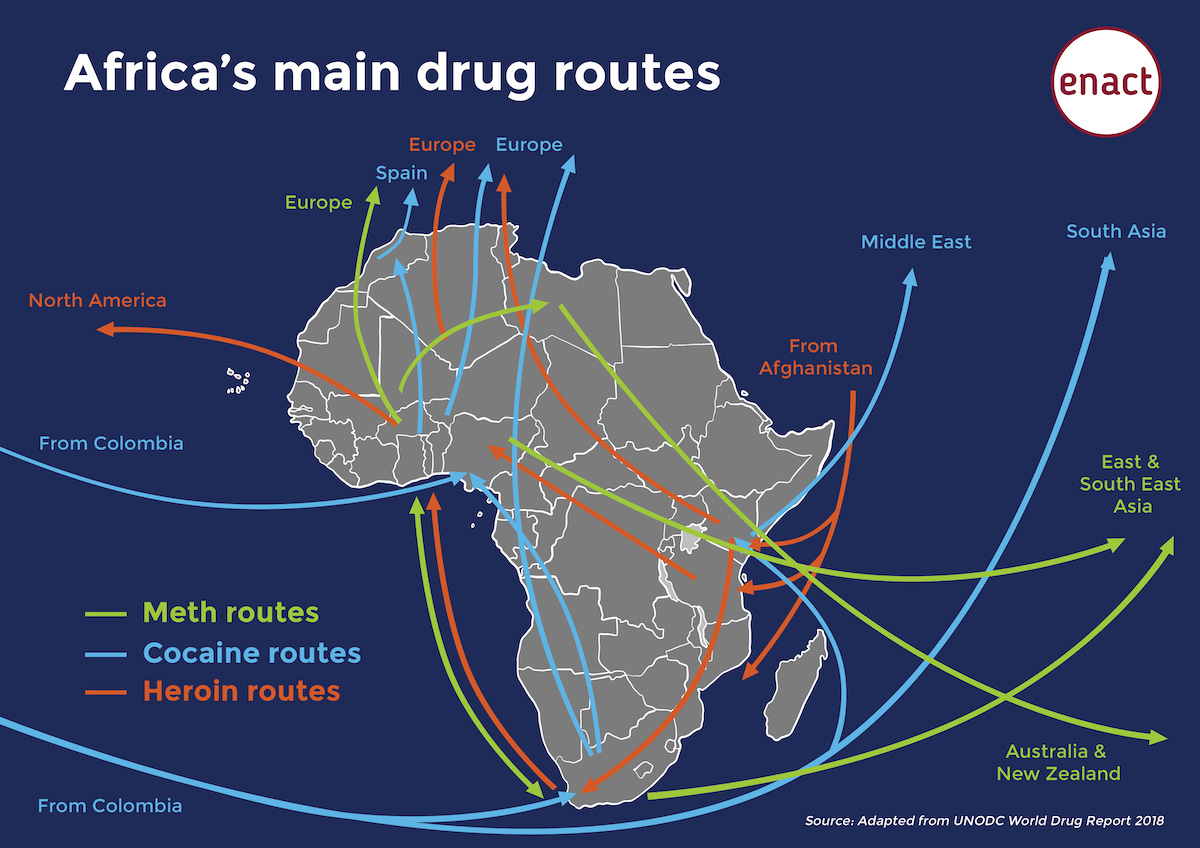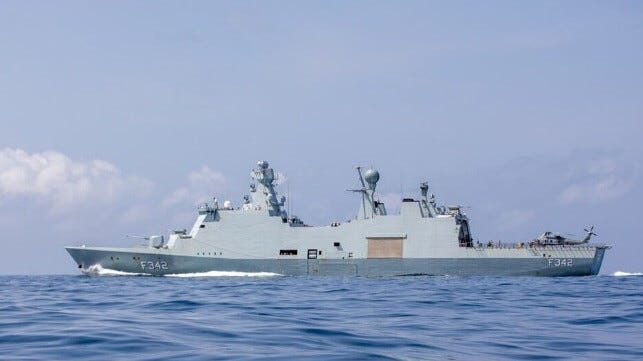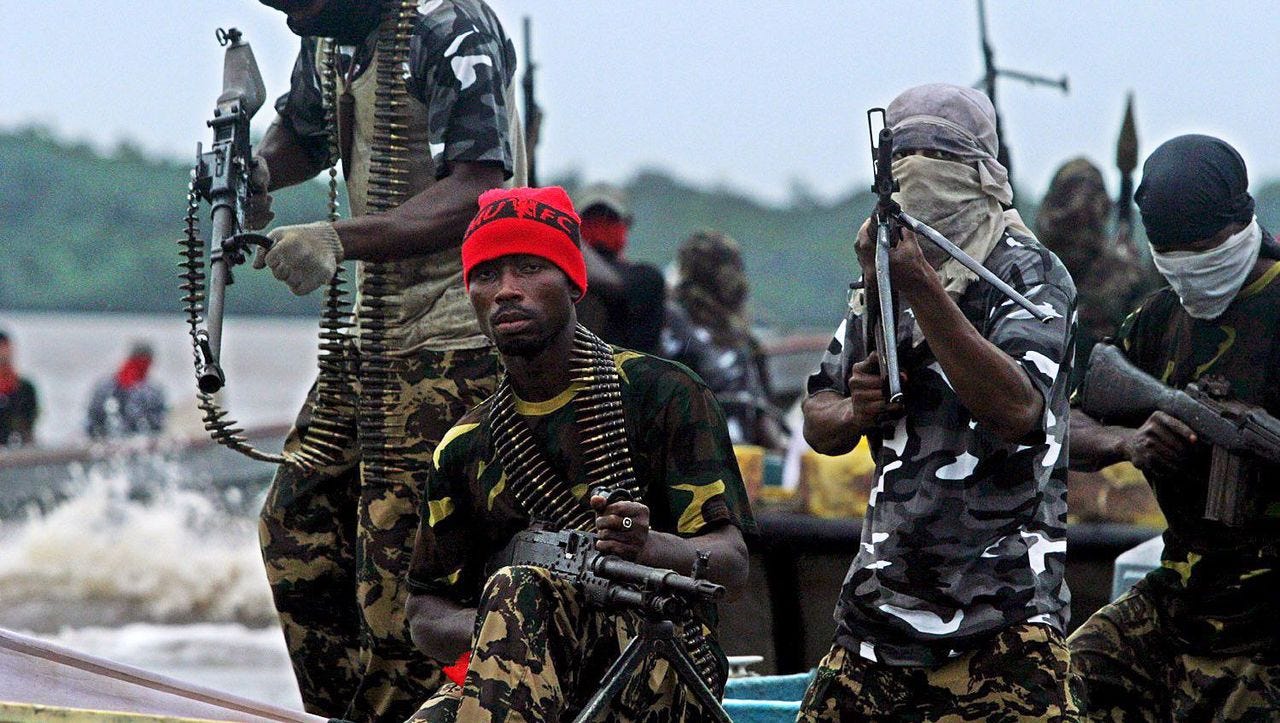The Gulf of Guinea has emerged as a global hotspot of piracy and a subject of increased concern for maritime security analysts, adding yet another category of armed non-state actors jeopardizing security in the broader West Africa region.
This is not an entirely new phenomenon. In 2018, it was reported that 121 mariners were kidnapped in the Gulf of Guinea which was more than a 50% increase from the previous year. A UN report released in late 2021 had some interesting numbers for the previous year. Of the 28 acts of piracy that occurred globally in 2020, 27 of them took place in the Gulf of Guinea. The number of seafarers that were exposed to kidnapping was 623. In contrast, so far in 2022 the first reported incident of an attempted boarding of a vessel did not take place until April of this year, and reports indicate that piracy in the area has declined during the first part of this year. However, the UN Security Council unanimously adopted a resolution on combatting piracy in the Gulf of Guinea, introduced by both Norway and Ghana at the end of May 2022, that was the first UN resolution on the situation to be passed by the Security Council in a decade.
The pirates use their knowledge of the region’s geography to their advantage. Specifically, anchorages and approaches to several key ports such as Lagos, Lomé and Abidjan are targeted due to the large number of ships loitering as they wait to dock. The pirates use fast-speed motorboats to approach the vessels and then board them, kidnapping the crew and stealing cargo.
There have been some moves made by concerned parties who have interests in the region. The Nigerian Navy routinely conducts operations in both the riverine areas and the Gulf itself. An effort has been launched by West African states to coordinate an ongoing anti-piracy mission similar to operations off the coast of Somalia. This effort formally began in January 2021
A separate effort to improve the military capacity of West African countries has come from the military exercise Obangame Express, organized by the United States. The US holds this exercise along with its regional partners and European allies, as well as other states interested in the region such as Brazil, in which drills both in port and out at sea are conducted and tactics are shared.
Prior to 2022, when the price of oil was still way down, it was becoming more profitable to kidnap the crews of seagoing vessels than to seize oil that could be carried by the vessels. It was these kidnappings that brought most attention to piracy in the region.
So how did the Gulf of Guinea become the world’s piracy hotspot? One investigation by the Organized Crime and Corruption Reporting Project in 2020 found two root causes. Unsurprisingly, a combination of corruption and poverty lies at the center of the issue. The OCCRP report adds, “The rise of piracy can also be attributed to a lack of anti-crime measures, according to Stable Seas.” It should be noted that the region is a known transit point in the narcotics trade that sees product transited to Europe from South America, which undoubtedly contributes to organized crime and insecurity in the region.

Inaction of regional governments has only added to the problem of piracy. Some of these nations generate revenue from the oil industry but have invested little in infrastructure projects or their own populations. In March 2022 the World Bank announced a 450 million USD project in the northern part of Benin, Ghana, Togo, and Cote D'Ivoire designed to prevent conflict from spreading south, address climate change, and promote economic activity. This is a decent start at addressing the socioeconomic gaps currently fueling regional instability.
While it's easy to focus on the oil industry as a major factor for piracy, there is another industry that needs to be mentioned for its contribution to the problem. The fishing industry has come under focus regarding its role in the deteriorating security of West Africa. The first report documenting illegal fishing as a threat to human security appeared back in 2017. As with other “blue economies” that are becoming increasingly commercialized, local intergenerational fishermen are finding less and less work, leading them to look towards other forms of income, sometimes illicit or illegal.
It is not the local fishermen that are the largest threat to the region, though; rather it is foreign actors that are having a negative impact. Recent reporting suggests that trawlers are flying the flags of China, South Korea and some European nations while fishing in the Gulf of Guinea. The loss of a livelihood is a motivating factor that could turn individuals towards a life of piracy. With the complaints that have been levied against the foreigners and the lack of accountability, one could ask if these acts which have cost Africa over 200 Billion USD over the last fifty years could have been prevented.
A regional body, the Fisheries Committee for the West Central Gulf of Guinea (FCRC), which represents Liberia, Côte D'Ivoire, Togo, Benin and Nigeria has taken the decision to set up its own center to monitor illegal fishing and other illicit activities that could contribute to regional piracy. Encouraging cooperation in combating piracy between regional countries is a step in the right direction.
There have been some attempts at finding a military solution to the issue of piracy. One such call came back in 2020 and recommended international support for the regional parties. Even the shipping company MAERSK called for military protection for its vessels that were operating in the Gulf of Guinea.
One obstacle to combating piracy in the Gulf of Guinea is the lack of prosecution of piracy by regional actors. In late 2021 the Danish frigate Esbern Snare captured three men suspected of piracy. To avoid a political incident where those arrested could only be tried in Denmark, the three men were provided with a dinghy and an outboard motor to return to their own shores. Having these suspects tried by local courts is a problem that is in the process of being addressed.

The Gulf of Guinea, despite seeing some recent decline in pirate activity, remains an area of concern. There are several reasons why piracy and other activities thrive there. Any solution will necessarily rely on foreign assistance and international cooperation. Unfortunately, cooperating in this area of maritime issues either is not always in everyone’s interests or at least is not a priority at the moment.



